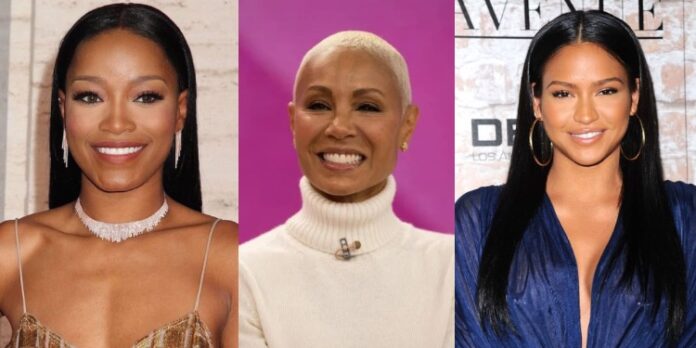“Dismissal Celebrity Culture Does Not Excuse Mistreatment of Black Women”
With recent headlines about singers/actors KeKe Palmer, Cassie, and Jada Pinkett- Smith emerging, the subject of Black women and respectability has once again become a topic of discourse.
Palmer, Cassie, and Pinkett Smith are celebrities, each celebrated in their own right: Palmer as a successful actress/producer and singer/songwriter known for her roles in “Akeelah & The Bee” (2006) , “Scream Queens” (2015-2016), “Hustlers” (2019), and “Nope” (2022); Cassie as a successful singer/actress known for her hits “Me & U”, “Unofficial Girl”, and “Must Be Love”; Pinkett-Smith as an accomplished actress known for her roles in “Set It Off” (1996), “The Matrix: Revolution & Reloaded” (2003) , “Girl’s Trip” (2017), and “Red Table Talk” (2018-2022).
But in recent months, each Black woman has found herself at the epicenter of public discussion and scrutiny. Pinkett-Smith has been under media scrutiny due to her recently released memoir, Worthy, shedding light on intimate moments between her and partner, fellow actor Will Smith. Palmer in part for her recent incident surrounding her domestic violence altercation with former partner Darius Jackson. And most recently, Cassie with her revelation of an abusive relationship with artist and record producer Sean “Diddy” Combs.
Each Black woman has claimed her agency in the space of society and culture and in regards to the space of the Black community, that comes bearing a lot of weight. Scholar Aria Halliday in her work “Buy Black: How Black Women Transformed US Pop Culture” (2022) argues, “‘Arguably, Black women have influenced every aspect of popular culture since they were brought over on slave ships…‘Black women both cooked—creating a popular cuisine that many places around the world covet—and created new types of music, clothing and style traditions, and vernacular sayings since the 1700s.’” And with such esteemed status comes a great deal of backlash- misogynoir.
Misogynoir is defined as either hatred, mistreatment, or prejudice against Black women. Coined by writer/activist Moya Bailey, misogynoir posits the same ideology as scholar Frances Beale’s “double jeopardy” – experiences intersected between two culture wars of race and gender. And in the case of Palmer, Pinkett Smith, and Cassie, this case of misogynoir is a classic case of intercultural shaming- Black women being the scapegoats of Black men.
Writer Janice Asare, in her 2020 article for Forbes, “Misogynoir: The Unique Discrimination That Black Women Face”, writes, “Black women and girls who share experiences of abuse, trauma, and assault are largely shunned, criticized and ignored. These experiences are questioned, scrutinized and dissected more than any other group…no amount of prestige, money, or fame can alleviate that.
Though these women are celebrities and their actions or lifestyle choices are questionable, that does not excuse the misogynoir aimed at them. It does make them the subject of blatant sexist rhetoric at the hands of Black men and, in some cases, other Black women. By engaging in conversation or behavior that promotes the dehumanization of Palmer, Pinkett-Smith, and Cassie, it in fact promotes and perpetuates misogynoir.








